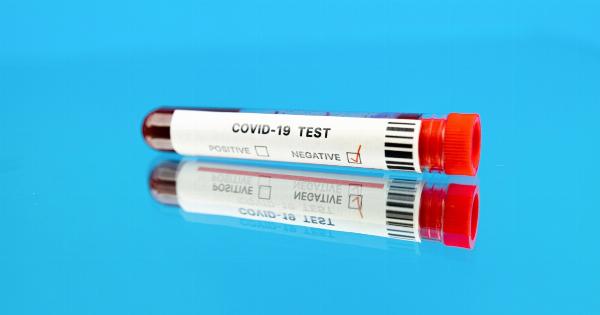Recently, a second case of Middle East Respiratory Syndrome (MERS) has been confirmed in a patient in [Location].
While this news may raise concerns and memories of the MERS outbreak that occurred a few years ago, it is important to remain calm and informed. Public health officials are taking swift action to contain the virus and prevent it from spreading further.
What is MERS?
MERS is a viral respiratory illness caused by the Middle East Respiratory Syndrome Coronavirus (MERS-CoV). It was first identified in Saudi Arabia in 2012 and primarily spreads from camels to humans.
The virus belongs to the same family as the Severe Acute Respiratory Syndrome (SARS) and the common cold.
The Second MERS Case
The second confirmed case of MERS in [Location] is a concern, but it is important to note that the patient is currently receiving appropriate medical care and is isolated to prevent further transmission.
Public health authorities are conducting contact tracing to identify anyone who may have come into close contact with the patient, and necessary precautions are being taken to ensure their safety.
Understanding MERS Transmission
MERS is primarily transmitted through close contact with an infected person. This includes respiratory droplets generated when an infected individual coughs or sneezes, as well as close and prolonged contact within approximately 6 feet.
It is not easily transmitted in the general community.
Preventing MERS Transmission
While there is currently no vaccine or specific antiviral treatment for MERS, there are steps individuals can take to reduce the risk of transmission:.
- Wash your hands thoroughly with soap and water for at least 20 seconds, especially after coughing or sneezing, before eating, and after using the restroom.
- Avoid close contact with individuals who are sick or have respiratory symptoms.
- Avoid touching your face, especially your eyes, nose, and mouth.
- Cover your mouth and nose with a tissue or your elbow when coughing or sneezing, and dispose of used tissues properly.
- Clean and disinfect frequently-touched objects and surfaces regularly.
- If you develop respiratory symptoms such as cough, fever, and difficulty breathing, seek medical attention and inform the healthcare provider about your travel history or any potential exposure to MERS.
The Role of Public Health Authorities
Public health authorities have a crucial role in managing and containing infectious diseases like MERS. They work diligently to identify and isolate cases, conduct contact tracing, educate the public, and implement necessary preventive measures.
The prompt response and cooperation between healthcare providers, government agencies, and the general public is essential in controlling the spread of MERS.
Learning from the Past Outbreak
MERS was previously identified in different countries, leading to outbreaks and causing significant concern. However, valuable lessons were learned from those experiences.
The expertise gained in managing previous outbreaks has strengthened preparedness and response mechanisms, enabling quicker detection, diagnosis, and containment of MERS cases. Health systems are better equipped to handle infectious diseases, minimizing the impact on public health.
Staying Informed and Supporting Efforts
It is crucial to stay informed about the latest developments and heed the advice and guidance provided by public health authorities. Misinformation and panic can hinder efforts to combat MERS effectively.
By staying informed and following recommended preventive measures, individuals can contribute to the overall prevention and control of the virus.
Conclusion
While the confirmation of a second MERS case in [Location] may cause concerns, there is no need for alarm. Adequate measures are being taken to contain the virus and protect public health.
Staying informed, following preventive measures, and supporting the efforts of public health authorities are essential in minimizing the impact of MERS and preventing its further spread.





























